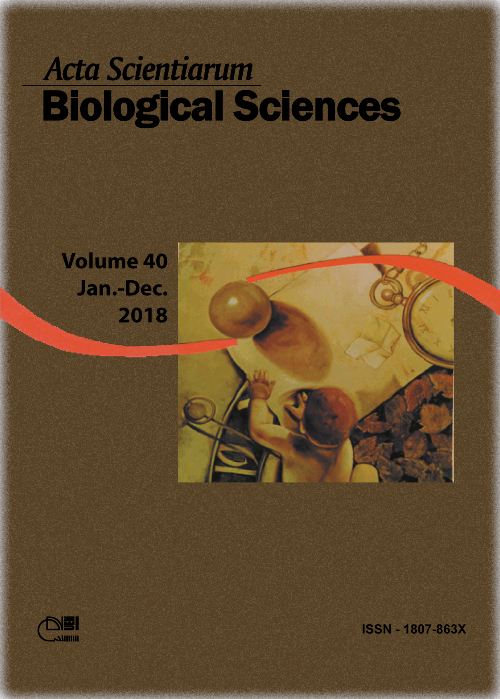<b>Elevated CO<sub>2</sub> concentration improves functional traits and early growth of the widespread species <i>Enterolobium contortisiliquum</i> (Vell.) Morong<sub>
Resumo
Enterolobium contortisiliquum is a neotropical widespread species that occurs in native Atlantic Forest, Cerrado and Caatinga vegetation in Brazil. Outside Brazil, it occurs in Argentina, Bolivia, Paraguay, and Uruguay. The objective of this study was to investigate the influence of high carbon dioxide concentration [CO2] on leaf gas exchange, chlorophyll content, chlorophyll a fluorescence, growth, and biomass allocation among roots, stems, and leaves in young plants of E. contortisiliquum. After germination, twenty days old individuals of E. contortisiliquum were grown in open-top chambers (OTC) at two different [CO2] (400 ppm and 700 ppm). Physiological measurements were made when the plants had been grown in OTC for 170, 200, 230, and 260 days. The higher [CO2] favored the early growth of E. contortisiliquum by increasing maximum net photosynthesis (PN) and water use efficiency. Under high [CO2], root dry mass increased in E. contortisiliquum, which might be a trait that will benefit this species by enhancing water uptake, particularly in seasonally dry environments.
Downloads
DECLARAÇÃO DE ORIGINALIDADE E DIREITOS AUTORAIS
Declaro que o presente artigo é original, não tendo sido submetido à publicação em qualquer outro periódico nacional ou internacional, quer seja em parte ou em sua totalidade.
Os direitos autorais pertencem exclusivamente aos autores. Os direitos de licenciamento utilizados pelo periódico é a licença Creative Commons Attribution 4.0 (CC BY 4.0): são permitidos o compartilhamento (cópia e distribuição do material em qualqer meio ou formato) e adaptação (remix, transformação e criação de material a partir do conteúdo assim licenciado para quaisquer fins, inclusive comerciais.
Recomenda-se a leitura desse link para maiores informações sobre o tema: fornecimento de créditos e referências de forma correta, entre outros detalhes cruciais para uso adequado do material licenciado.













1.png)




3.png)













